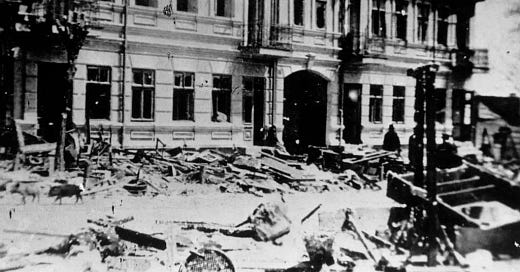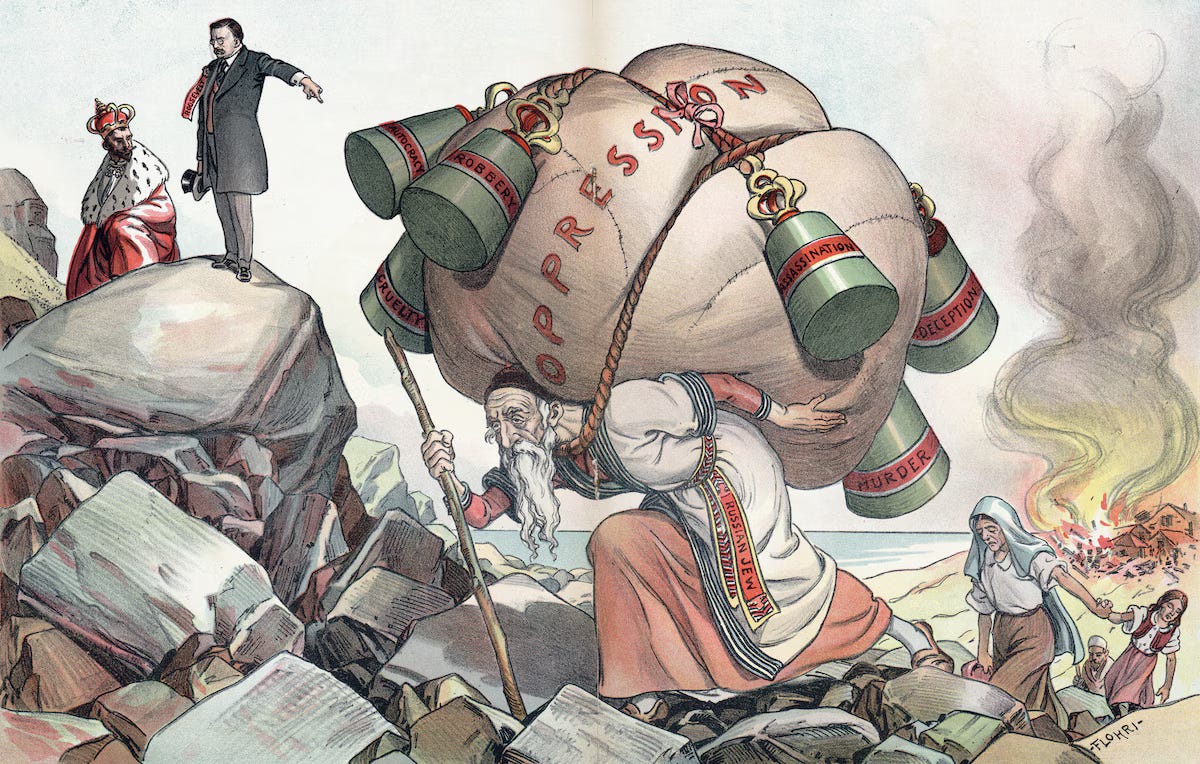The Kishinev Pogrom took place during Easter 1903 in the city of Kishinev (now Chișinău) in the Russian province of Bessarabia (modern-day Moldova). State-sanctioned violence against Russia’s four million Jews had been going on for decades. Pogroms (Russian for “to wreak havoc, to demolish violently”) broke out all the time in the Russian Pale of Settlement, usually with the tacit approval of the Orthodox church and the police. These events seldom made the news.
The Kishinev massacre made headlines around the world.
Unlike other European nations, which were evolving into constitutional monarchies or republics, Russia seemed to be sliding backward. Russia’s ruler, Czar Nicholas II, was determined that his country would continue to be Europe’s last remaining absolute monarchy.
The three pillars of Russia were “Orthodoxy, Autocracy, and Nationality.”
The czar and his entourage led a cloistered existence in the Tsarskoe Selo compound just outside of St. Petersburg. To deflect blame for famines, labor unrest, and growing financial inequality, the Czarist government used antisemitic conspiracy theories (most notably the state-sponsored forgery The Protocols of the Elders of Zion) and violence (pogroms) as a means to avoid making any concessions to modern democratic rule or civil rights. As one of Nicholas II’s closest advisors declared: the ideal situation for the “Jewish Question” in Russia would be if one-third of the country’s Jews died, one-third immigrated, and one-third disappeared.
Jews represented a giant social and political threat to the czarist order. Some were political radicals like Lev Davidovich Bronstein (Leon Trotsky). Others were classical liberals inspired by the French Enlightenment. Most were simply poor tradesmen, forbidden from owning land, who did not want their sons drafted into the Russian Army.
The Kishinev Pogrom—in which 49 people were killed, over 500 injured and raped, and over 600 businesses were looted—attracted widespread international condemnation, most notably from President Theodore Roosevelt, who declared that the czar was a “preposterous little creature.”
The Russian ambassador to the United States, Count Cassini, dismissed the president’s (and others) complaints about Jewish persecution as utter nonsense.
For the Jews of Russia, Kishinev confirmed that things were not going to get better under the czars, but rather much, much worse.
For over one million of them, there was only one answer: America. That meant selling everything they owned, crossing the German-Russian border, and getting on a ship bound for the so-called “Das goldene land.”















Share this post